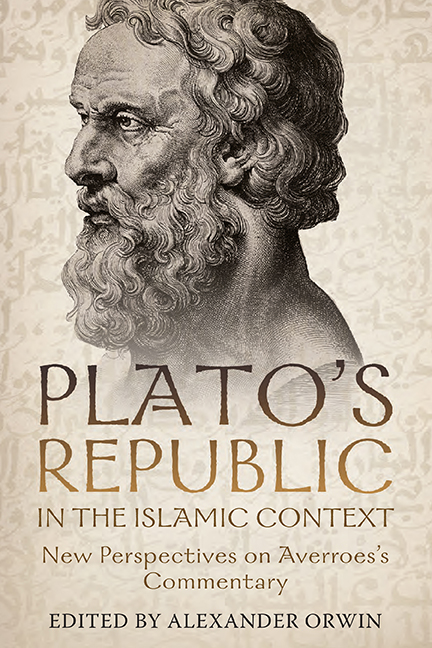Book contents
- Frontmatter
- Dedication
- Contents
- Introduction
- Part One Averroes and His Teachers
- Part Two Poetry, Philosophy, and Logic
- Part Three Law, Religion, and Philosophy
- Part Four Wisdom, Government, and the Character of the Political Community
- Part Five Averroes’s Reception in Europe
- Selected Bibliography
- Notes on the Contributors
- Index
5 - Averroes on Family and Property in the Commentaryon Plato’s “Republic”
Published online by Cambridge University Press: 26 May 2022
- Frontmatter
- Dedication
- Contents
- Introduction
- Part One Averroes and His Teachers
- Part Two Poetry, Philosophy, and Logic
- Part Three Law, Religion, and Philosophy
- Part Four Wisdom, Government, and the Character of the Political Community
- Part Five Averroes’s Reception in Europe
- Selected Bibliography
- Notes on the Contributors
- Index
Summary
Introduction
In this chapter, I will focus on Averroes's position onfamily and property in his Commentary on Plato's “Republic.” I willlay out his views on the role of parents in theeducation of children, and the place of women andchildren within the family and in society. I willexamine Averroes's stance on private and collectiveproperty, as well as his questions pertaining to thetransmission of property.
Averroes's primary goal in this commentary is arguablyto elucidate Plato's analysis of the structure ofthe ideal political state, given that, by his ownadmission, he could not find an Arabic translationof Aristotle's Politics. A distinction can in principlebe made between Plato's views as expounded byAverroes, and the latter's own views on a givensubject. Averroes’ positions can be discerned in theway he introduces personal comments and referencesto contemporary al-Andalus. In order to discernAverroes's positions and to discover whether heconcurs with Plato on issues such as the question ofeducation and the status of women and property,comparisons will be drawn with his main legal work,Bidāyat al-Mujtahidwa-Nihāyat al-Muqtaṣid, so as to uncoverhis position on such legal matters as family law andproperty law.
It seems that Averroes would have preferred to write acommentary on Aristotle's Politics, since Aristotle's views arecloser to his own. In spite of the fact that he iswriting on a philosopher with whom he has feweraffinities, he succeeds in presenting many of hisown views in this commentary on Plato. This isperhaps owing to the fact that Averroes often quotesAlfarabi, who greatly admired Plato's philosophy andheld it to be in harmony with Aristotle’s. ThusAlfarabi, who is a great source of inspiration forAverroes, constitutes in this instance a strong linkbetween Averroes and Plato. Averroes draws on Platoand appears to agree with him in many respects.Writing on Plato's work also allows him to expoundsome of his own views on issues such as virtue,education, the political state, and religion. In theCommentary on Plato's“Republic” there are echoes of works byAlfarabi, in particular TheAttainment of Happiness.
- Type
- Chapter
- Information
- Plato's Republic in the Islamic ContextNew Perspectives on Averroes's <i>Commentary</i>, pp. 113 - 132Publisher: Boydell & BrewerPrint publication year: 2022



